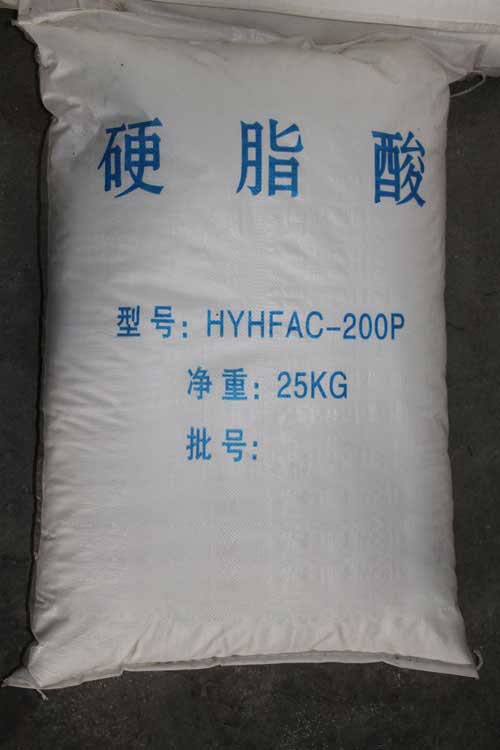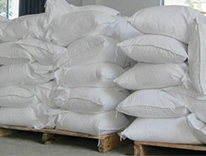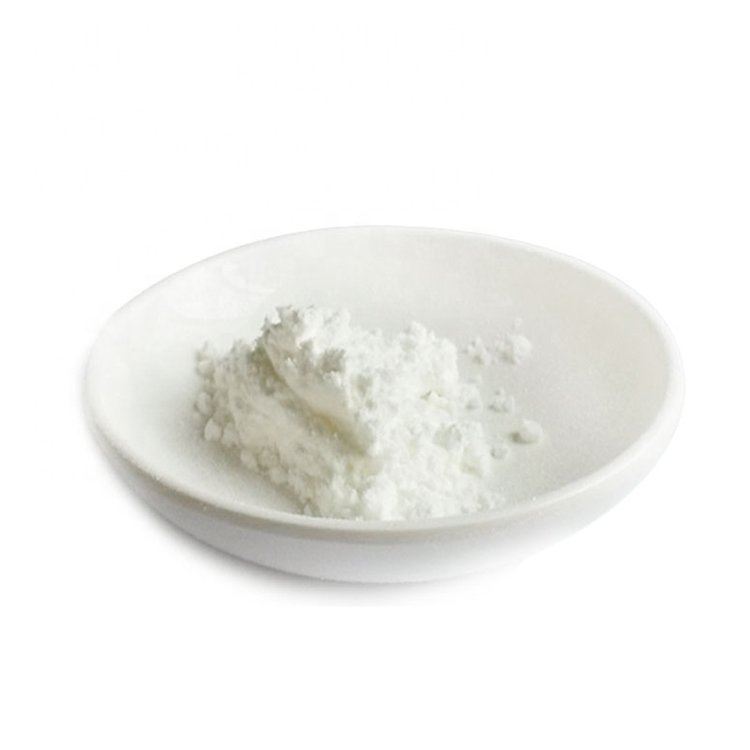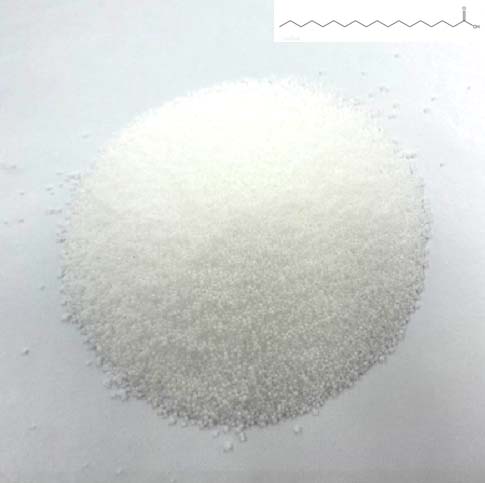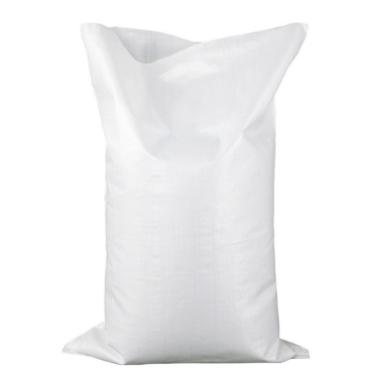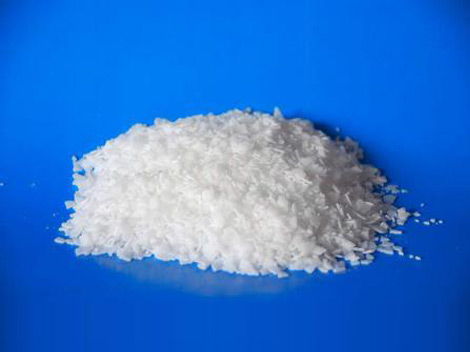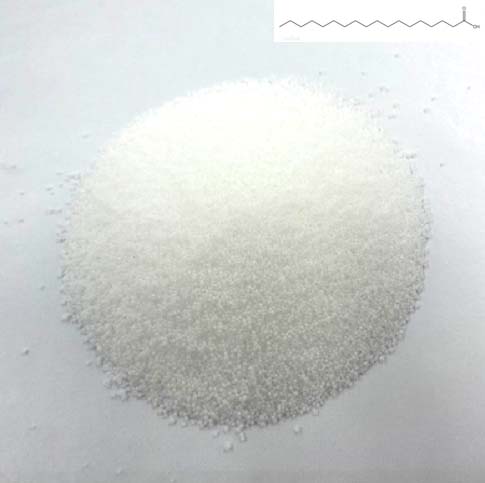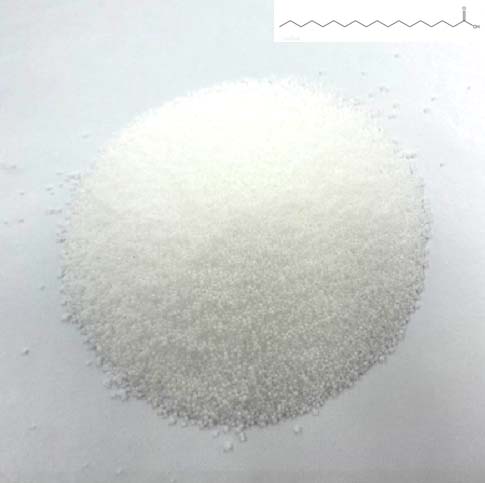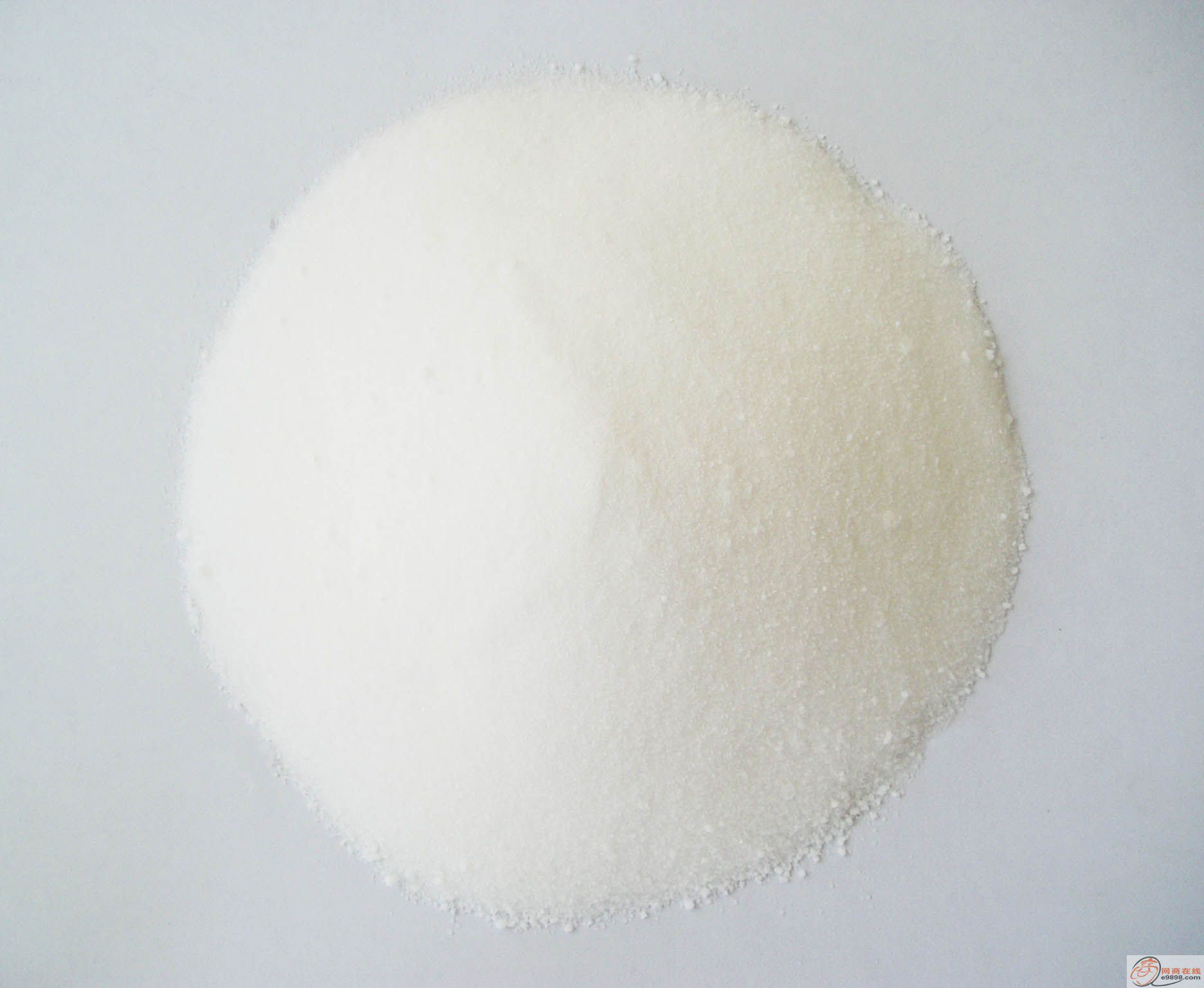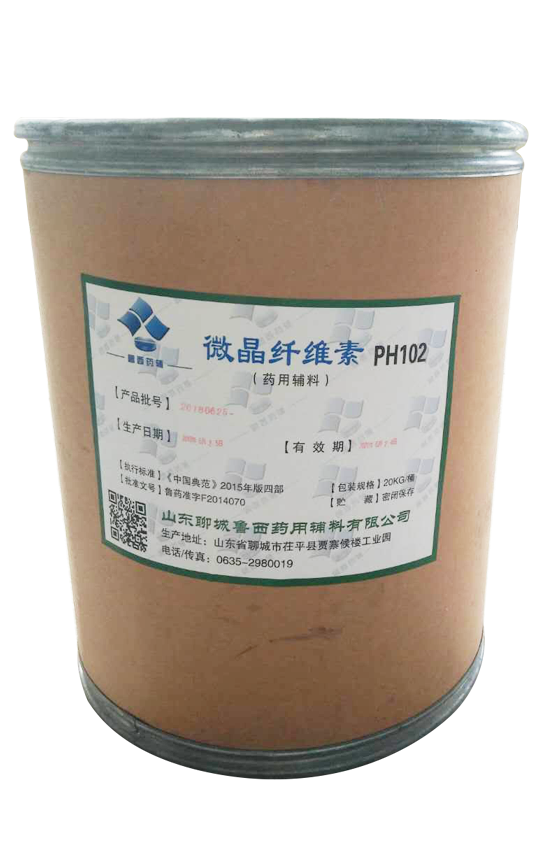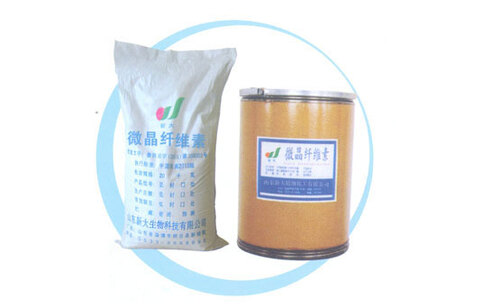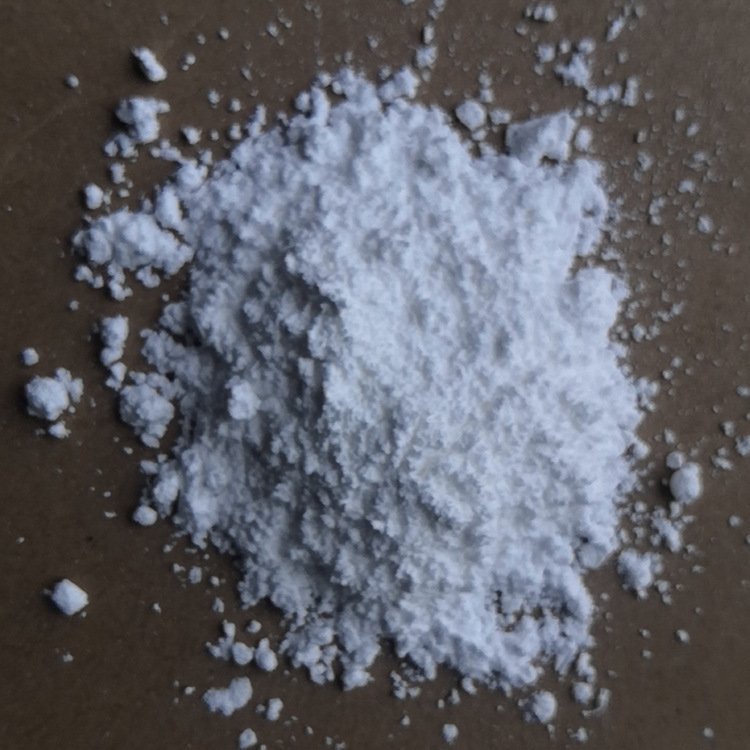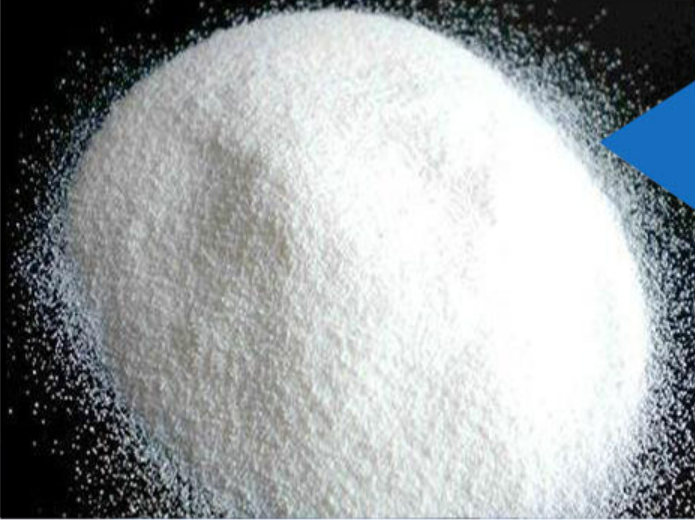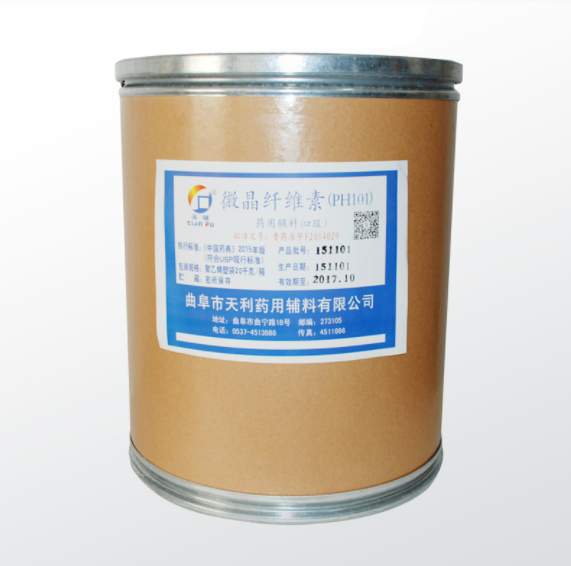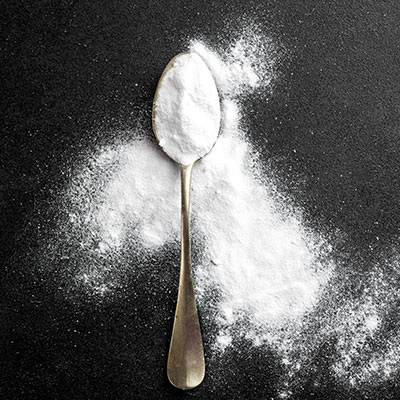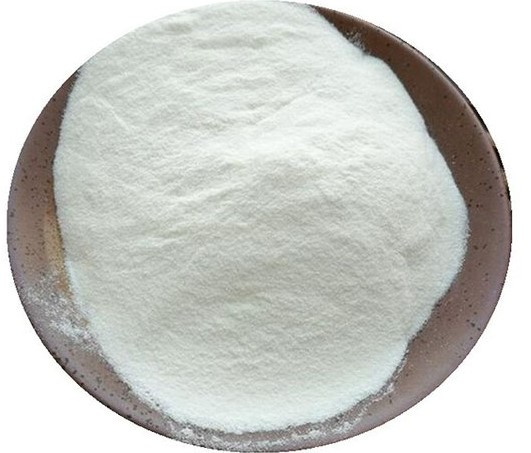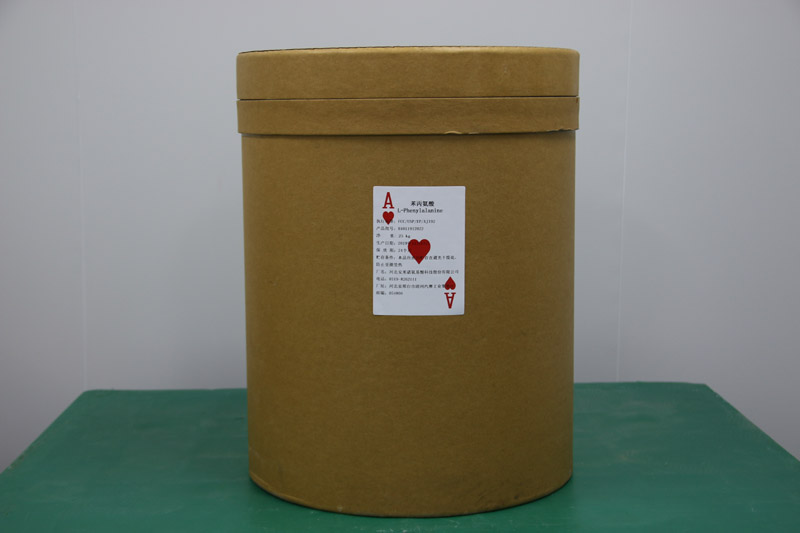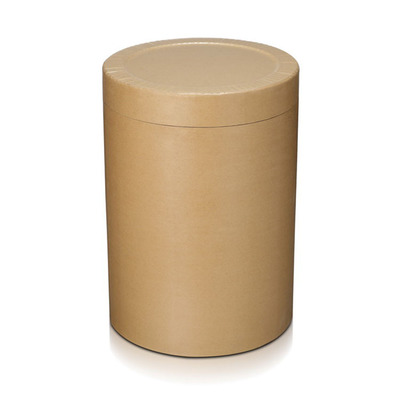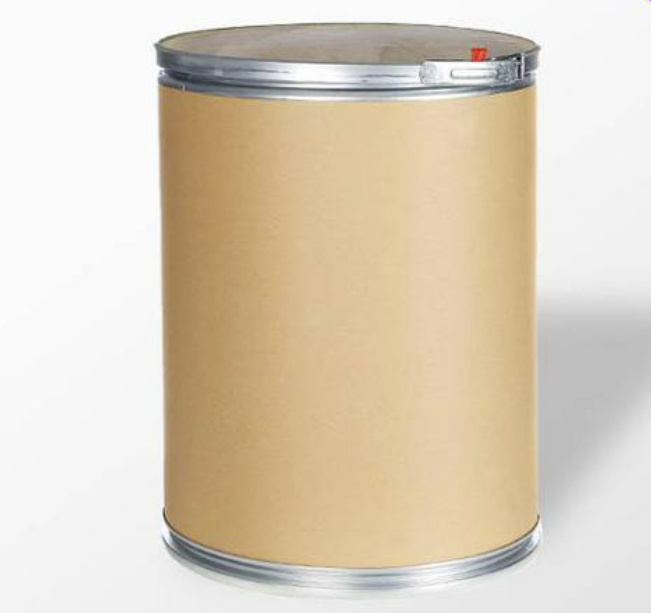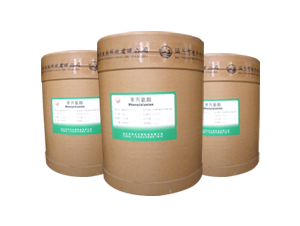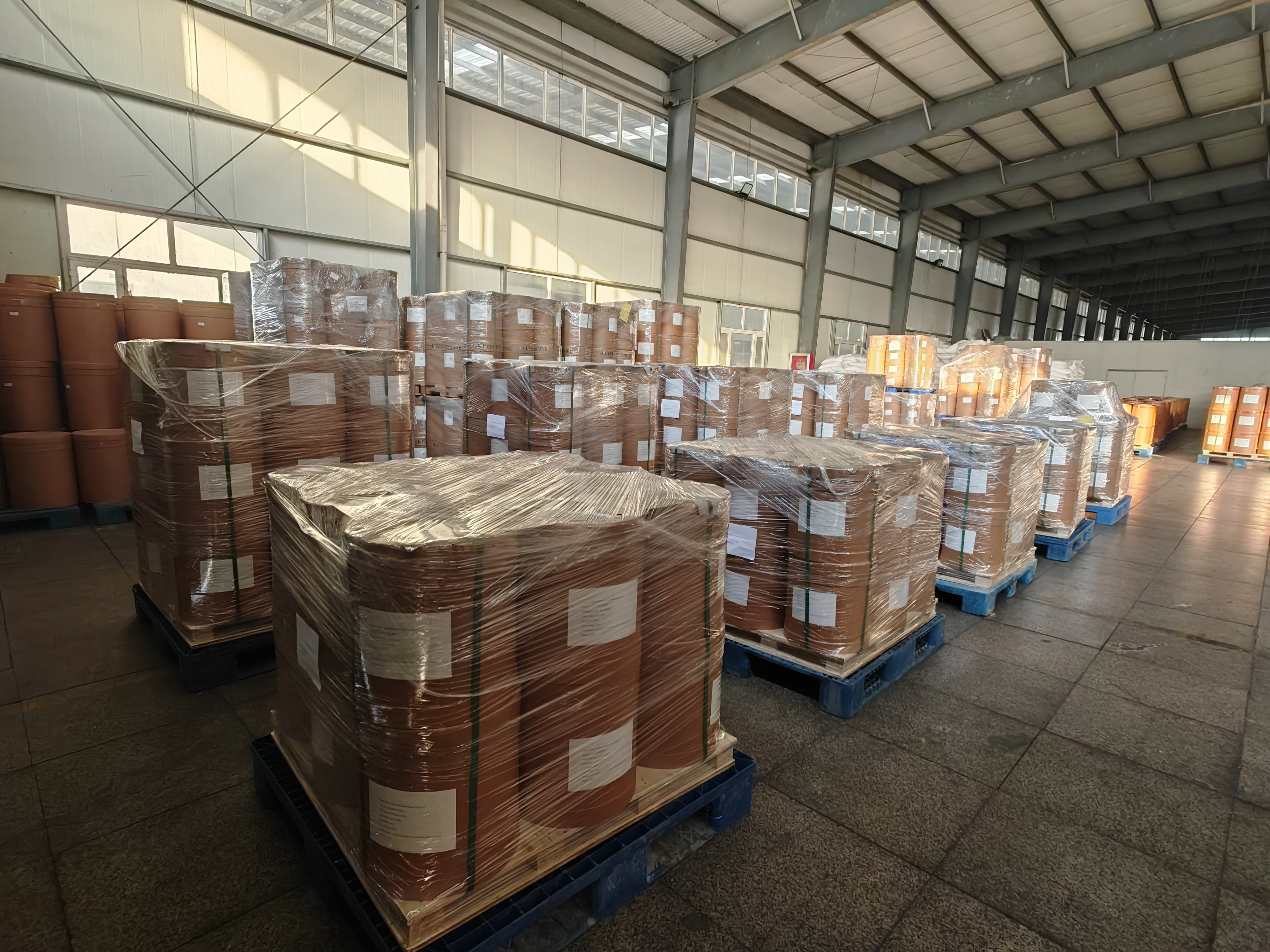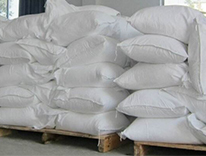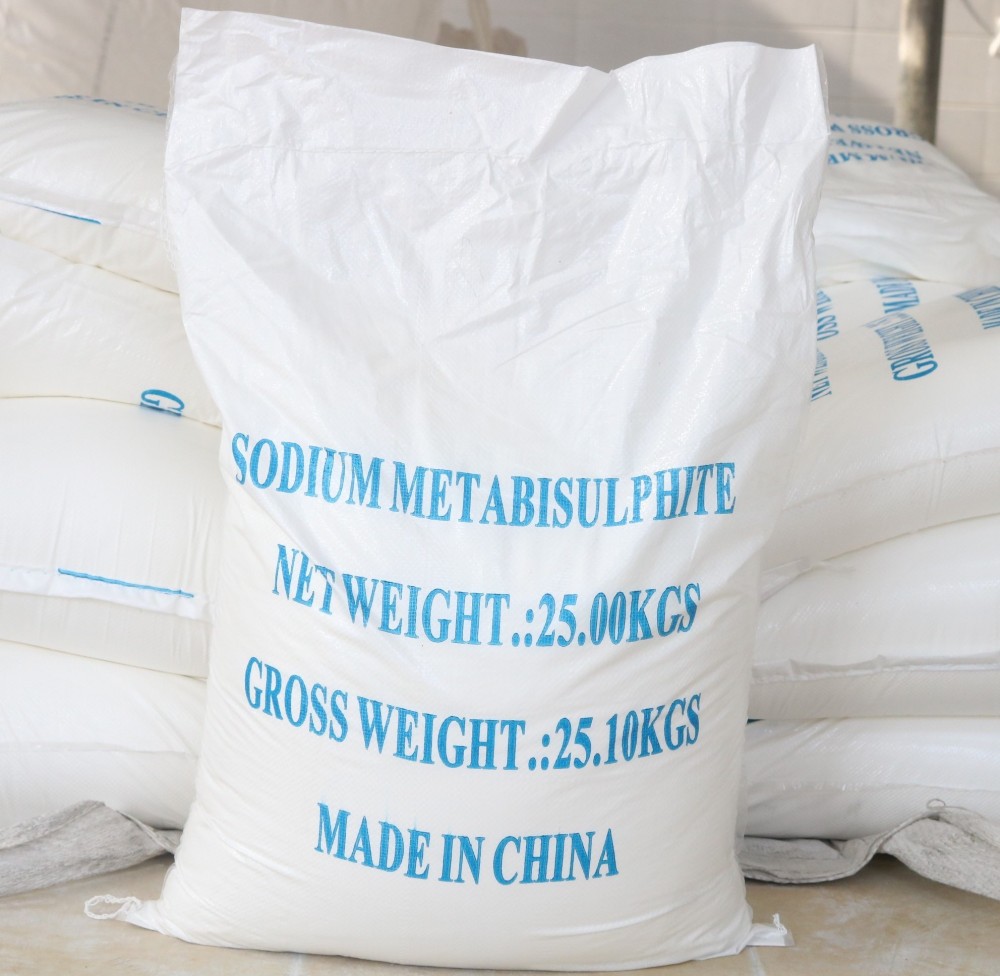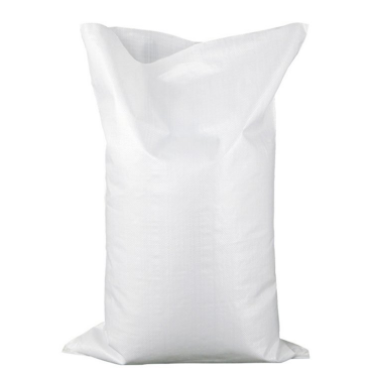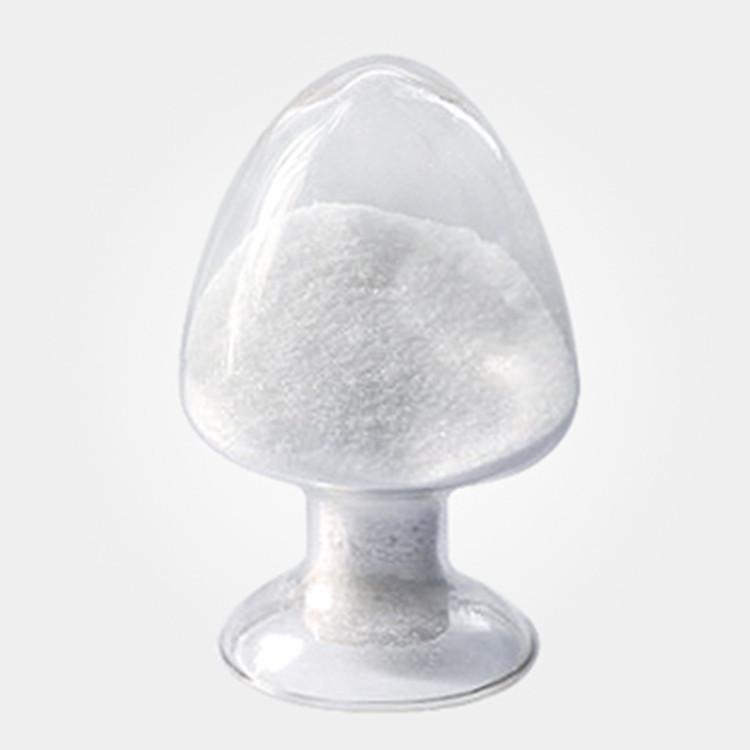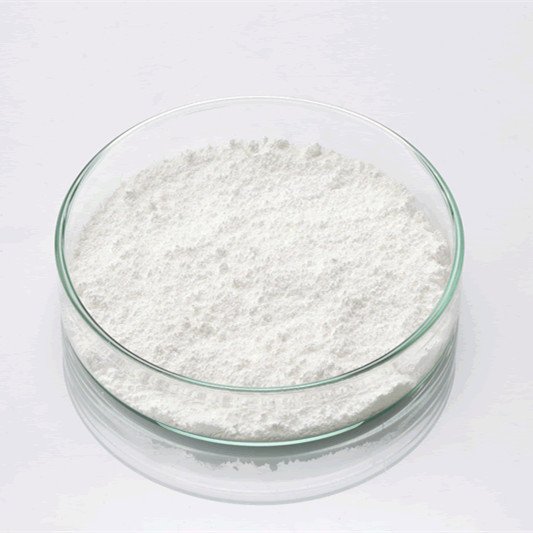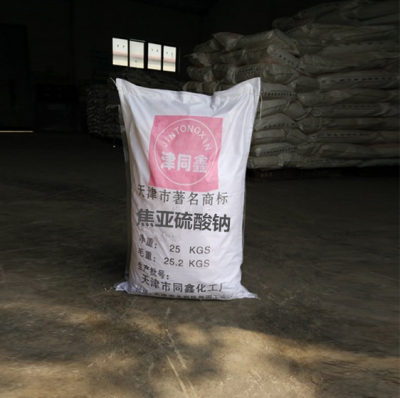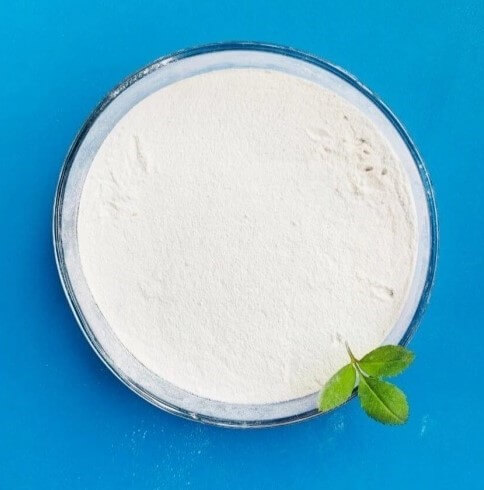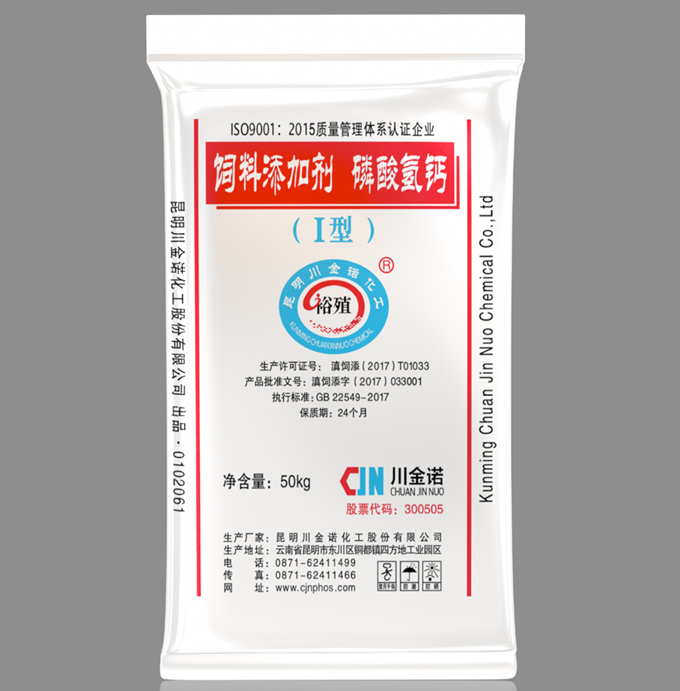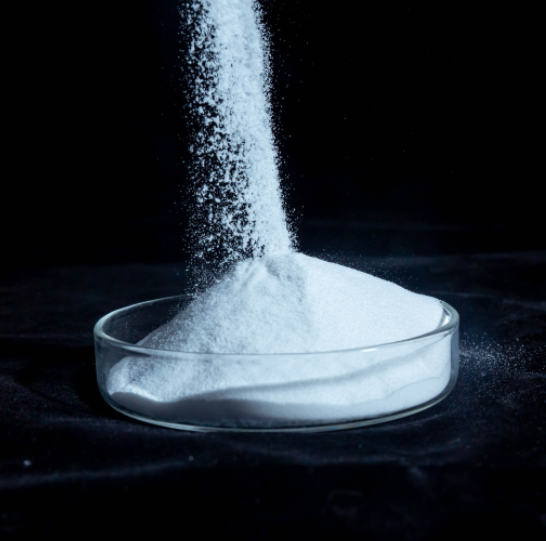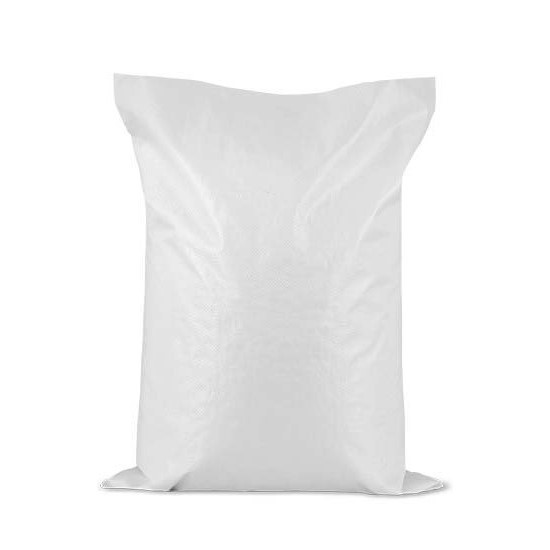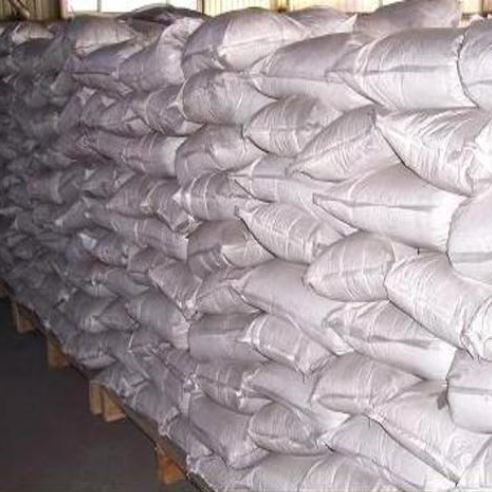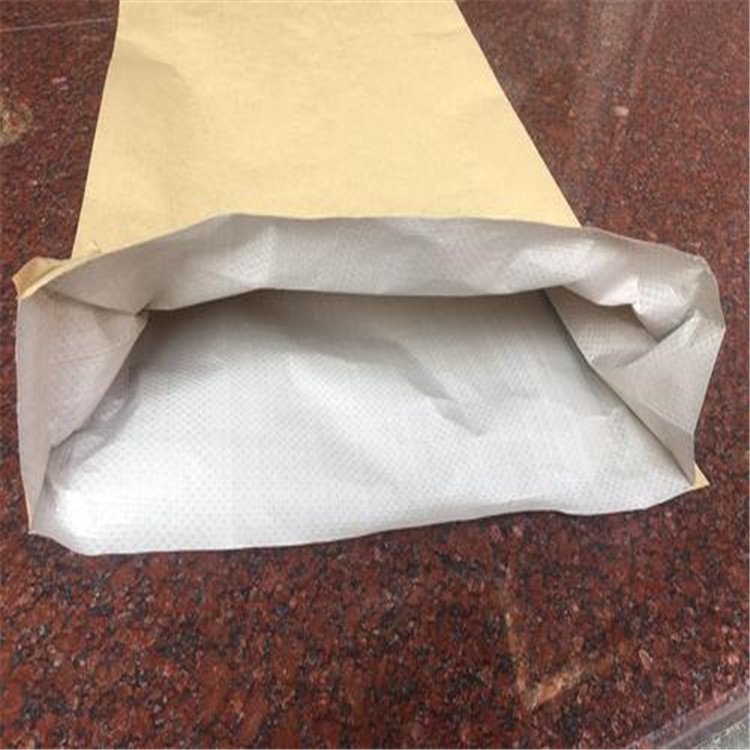Food(Feed) Additives
Feed Additive
Additives For Food Packaging
Colorant
Stabilizer and Coagulator
Water Retention Agent
Feed Deworming Health Agents
Anti Corrosion and Preservation
Color Fixative
Flour Treatment Agent
Defoamer
Coating Agent
Feed Vitamins
Emulsifier
Other Food Additives
Nutritional Fortifier
Thickening Agent
Feed Quality Enhancer
Antioxidants
Chewing Gum Bases
Bulking Agent
Feed Amino Acids and Small Peptides
Flavor Enhancer
Sweeteners
Additives For Feed Preservation
Other Feed Additives
Food Additive
Bleaching Agents
Anticaking Agent
Food Flavors and Fragrances
Enzyme Preparation
Feed Trace Elements
Acidity Regulators
Feed Growth Promoters
Feed Conditioner
Find
1530
related chemicals for you
CAS:57-11-4
Molecular Formula:C18H36O2
Alias
More Information
Soybean oil Fatty Acids; Octadecanoic acid; Stearophanic acid; n-Octadecanoic acid; Cetylacetic acid; Pearl Stearic; Stearex Beads; Octadecansaeure; Stearinsaeure; Vanicol; 1-Heptadecanecarboxylic acid; Century 1240; Industrene R; Glycon DP; Glycon TP; Humko Industrene R; Dar-chem 14
Brief Introduction
Stearic acid is a kind of fatty acid widely existing in nature. Almost all oils contain stearic acid with different contents. The content of stearic acid in animal fat is higher, such as 24% in butter, less in vegetable oil, 0.8% in tea oil and 6% in palm oil, but 34% in cocoa butter.
Suppliers
View More Vendors (10) >
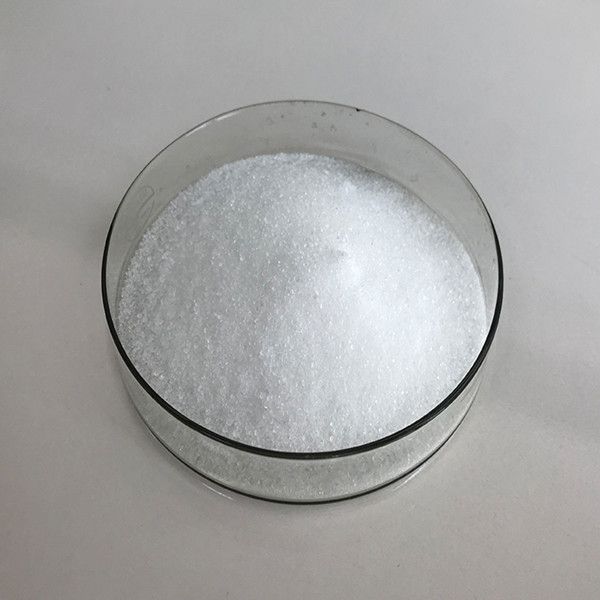
Acid value (calculated by KOH): 196-211mg / g; Iodine value (calculated by I) ≤ 7.0g/100g
/
Food Grade
20kg
/
Woven Bag
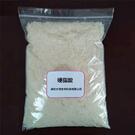
Saponification value: 207-215; Moisture: ≤ 0 2%; Acid value: 205-212
/
Tech Grade
25kg
/
Woven Bag
CAS:9004-34-6
Molecular Formula:C12H22O11
Alias
More Information
Deae-Cellulose; Cellulose, 2-(Diethylamino)Ethyl Ether; Diethylaminoethyl Cellulose; Cellulosepulver; MCC; Avicel; (6S)-2-(Hydroxymethyl)-6-[(3S)-4,5,6-Trihydroxy-2-(Hydroxymethyl)Oxan-3-Yl]Oxyoxane-3,4,5-Triol; Cellulose Microcrystalline; Microcrysatlline Cellulose; Micro Crystalline Cellulose; Cellulose; Mycrocrystalline Cellulose; Avicel PH-101
Brief Introduction
Microcrystalline cellulose is mainly used as non caloric food additive, pharmaceutical excipient and dispersant, thin layer chromatography and column chromatography filler, dye and pigment carrier, thermosetting resin and thermosetting laminate reinforcing filler, coating, emulsifier. It can also be used in water-based paint and ceramic industry.
Suppliers
View More Vendors (10) >
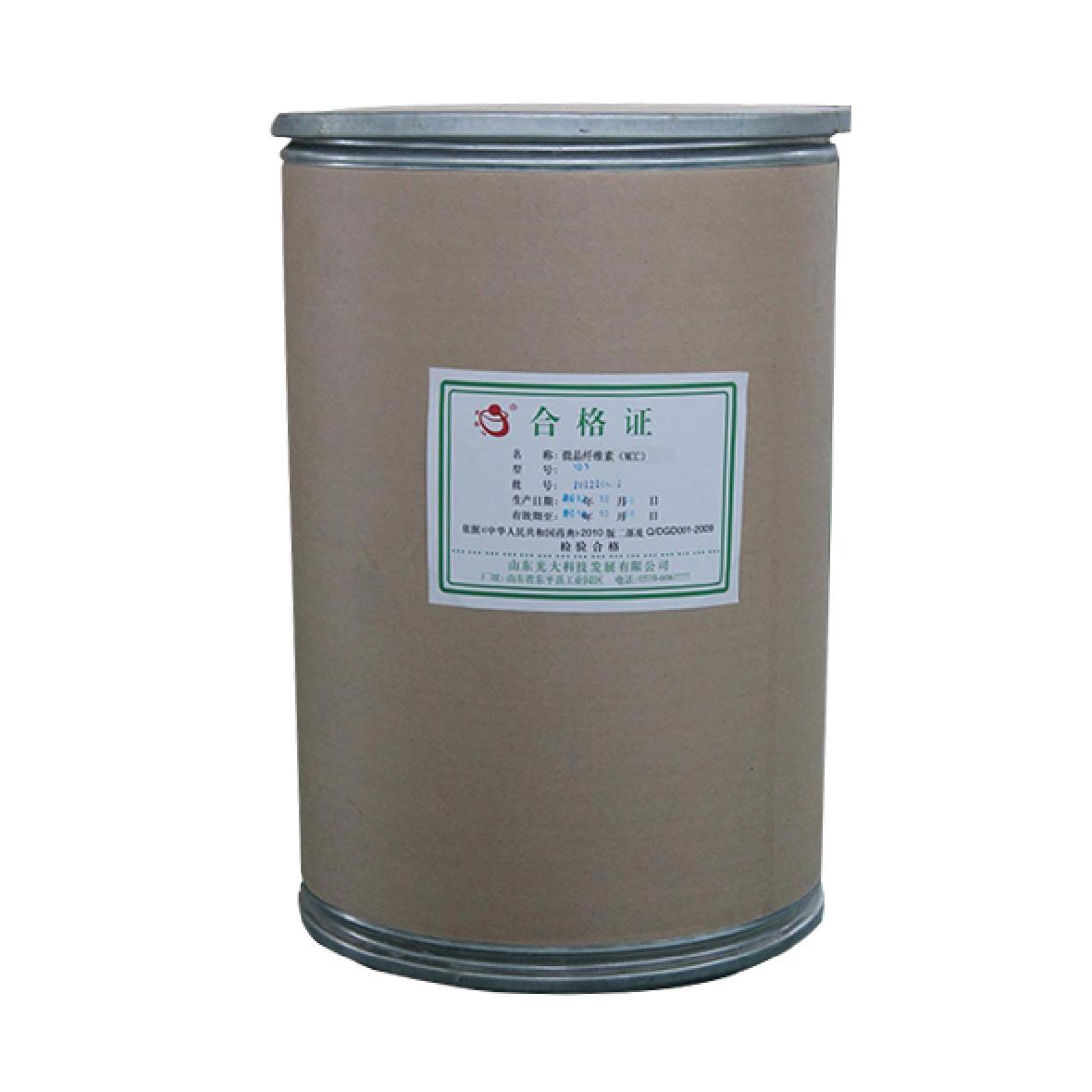
EP;Content: 97.0% ~ 102.0%
/
Pharm Grade
25kg
/
Paper Bag
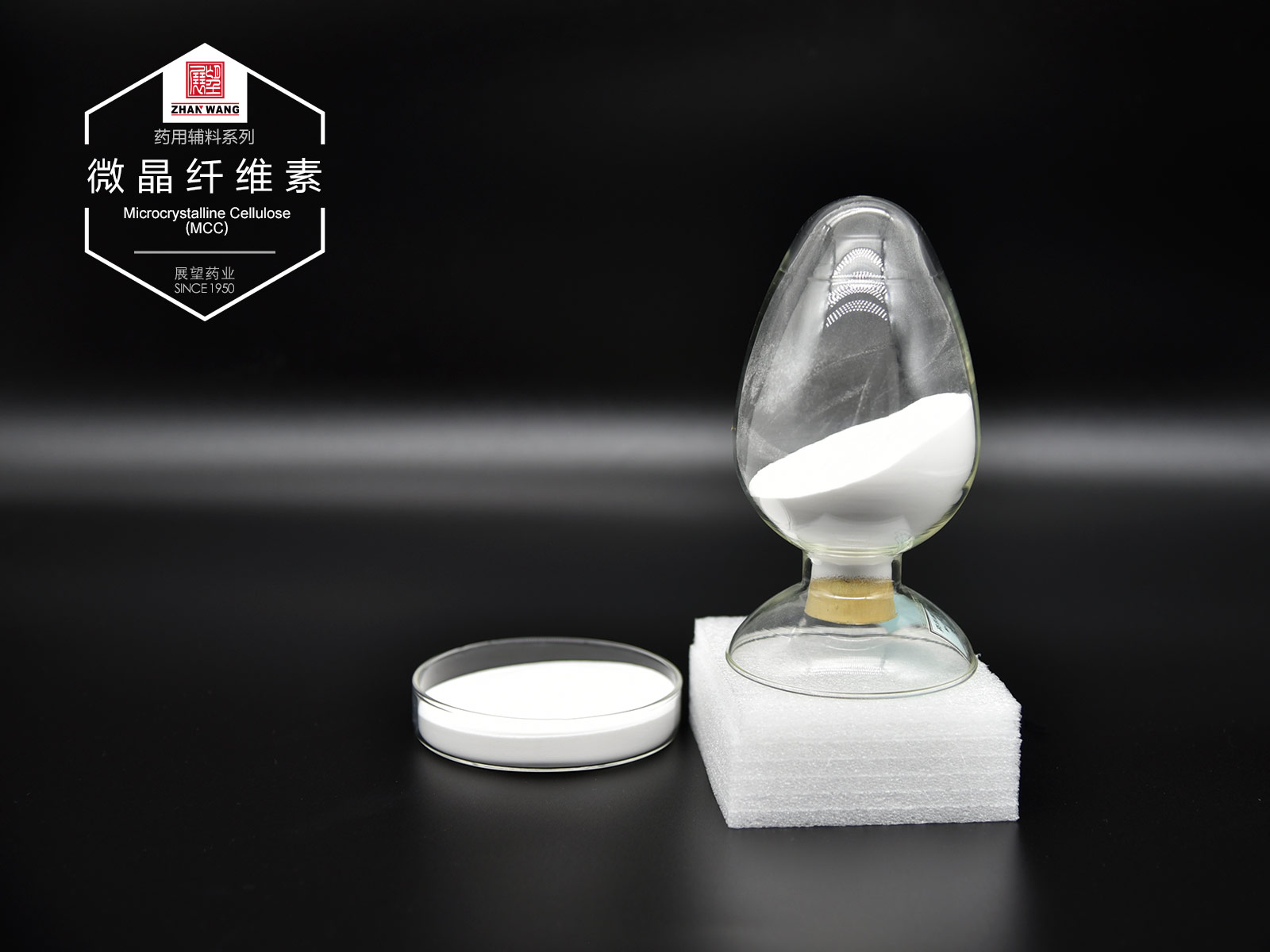
Ch.P.;USP Average particle size 120 μ m
/
Pharm Grade
25kg
/
Fibre Drum
CAS:63-91-2
Molecular Formula:C9H11NO2
Alias
More Information
Benzenepropanethioic Acid,S-Phenyl Ester; Phenyl 4-Phenylthiobutanoate; 3-Phenylpropionyl-Phenyl-Thioether; 3-Phenylthiopropionic Acid,S-Phenyl Ester; S-Phenyl-3-Phenylpropanthioat; Thiohydrozimtsaeurephenylester; L-Beta-Phenylalanine 99 %; (S)-(-)-Phenylalanine For Synthesis; L-Alanine, Phenyl-; L-Aminobenzenepropanoicacid; L-Antibiotic Fn 1636; L-Beta-Phenyl-Alpha-Alanin; L-Phenylalanin; L-α-Amino-β-Phenyl-PropionsαUre
Brief Introduction
L-Phenylalanine is one of the twenty common amino acids. It is a powder solid at room temperature. L-Phenylalanine is an essential amino acid. Because the benzene ring at one end of the molecule is hydrophobic, L-phenylalanine is classified as a nonpolar molecule. L-Phenylalanine is an electrically neutral amino acid, and "uuu" and "UUC" are its codons. L-Phenylalanine is the precursor of tyrosine, dopamine, norepinephrine, epinephrine and melanin. L-Phenylalanine is found naturally in mammalian milk. It is used in the manufacture of food and beverage products and is sold as a nutritional supplement with its famous analgesic and antidepressant effects. It is a direct precursor of phenylethylamine, a neuromodulator, and a common dietary supplement. The human body cannot synthesize phenylalanine by itself, so it must be taken from the diet. Generally, L-phenylalanine is produced by plants. Therefore, the main use of this product is for functional food additives.
Suppliers
View More Vendors (9) >
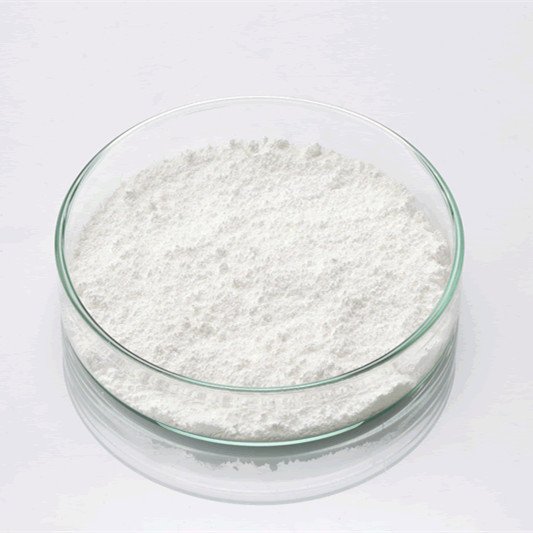
USP/EP/BP/CP/AJI
/
Pharm Grade
25kg
/
Fibre Drum
CAS:7681-57-4
Molecular Formula:Na2O5S2
Alias
More Information
Natrium Pyrosulfit; Sodium Pyrosulfite; Sodium Disulfite; Disodiumpyrosulphite; Metabisulfitedesodium; Sodiummetabisulphite; Fertisilo; Natrii Disulfis; SMBS; sodıum meta; INS 223; Sodium Metabisulphite
Brief Introduction
It is used as preservative, bleach and loosening agent in food processing. In industry, sodium pyrosulfite is used in printing and dyeing, organic synthesis, printing, tanning, pharmaceutical and other departments; Sodium pyrosulfite is used in the chemical and pharmaceutical industries for the production of insurance powder, sulfamethazine, analgin, caprolactam, etc., as well as the purification of chloroform, phenylpropanesulfone and benzene formaldehyde. The photographic industry is used as an ingredient for fixing agents. Perfume industry is used to produce vanillin. It is used as preservative in brewing industry, rubber coagulant and dechlorination agent after cotton bleaching. Organic intermediates, dyes and tanning are used as reducing agents, electroplating industry, oilfield wastewater treatment and mineral dressing agent in mines.
Suppliers
View More Vendors (9) >
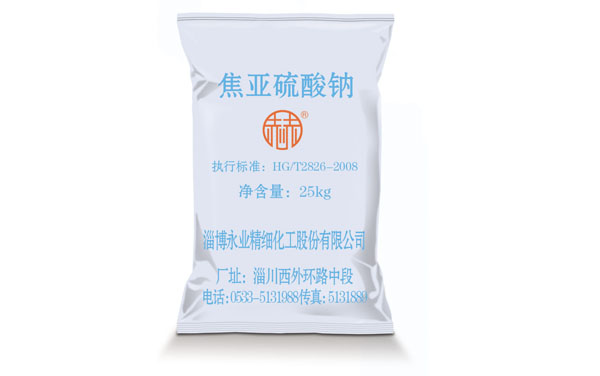
≥ 65% (calculated by sulfur dioxide)
/
Tech Grade
25kg
/
Woven Bag
CAS:7757-93-9
Molecular Formula:CaHO4P
Alias
More Information
DCP; Di-Calcium Phosphate; Calcium Phosphate; Calcium Hydrogen Phosphate Anhydrous; Calcium Perphosphate,Ammonified,Granular; Calcium Hydrogenorthophosphate; Calcium Hydrogen Phosphate; Calcium Monohydrogen Phosphate; Calcium Phosphate, Dibasic; Phosphoric Acid, Calcium Salt (1:1); Secondary Calcium; Dibasic Calcium Phosphate; Calcium Hydrogen Phosphate,Agricultural; Calcium Acid Phosphate; Calcium Dibasic Phosphate; Dicalcium Phosphate Anhydrous; di Calcium Phosphate Anhydrous; Dicalcium Phosphate 18%; Dicalcium Phosphate - feed Grade; Dicalcium Phosphate Granular; di Calcium Phosphate
Brief Introduction
This product is used as base fertilizer, food additive and feed additive for various crops. It can be widely used in bone substitute materials, plastic and cosmetic surgery, dentistry, chromatography purification and calcium supplement.
Suppliers
View More Vendors (9) >
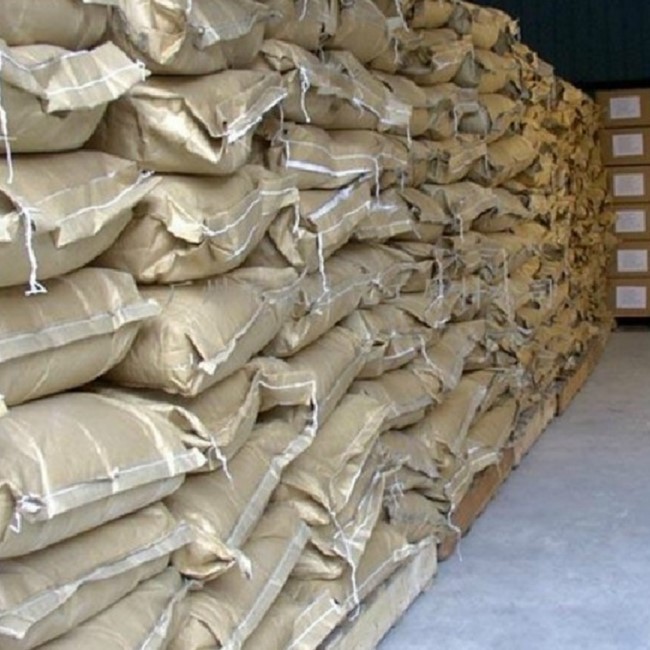
Ch.P.;USP Particle size distribution (95% distribution) 20 mesh ~ 120 mesh
/
Pharm Grade
25kg
/
Paper Bag
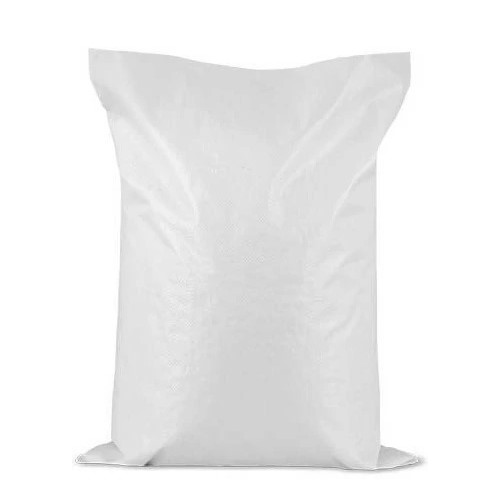
Phosphorus ≥ 19%, calcium ≥ 26%
/
Feed Grade
25kg
/
Woven Bag
Thermphos (Jiangsu) Technology Co.,Ltd.

25kg
/
-
Inquiry (
10
/ 10
)
Clear All
You can inquire for up to 10 products at a time
Sign In
Error!

